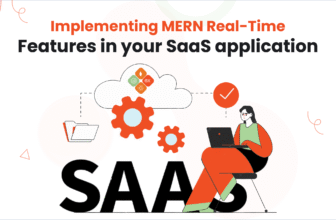
The digital transformation of the agricultural industry has gained significant momentum in recent years, thanks to advancements in technology. Farmers today have access to powerful agriculture apps that simplify farming operations, improve efficiency, and provide critical information in real-time. These apps, often developed by specialized agtech development companies, serve as essential tools that help farmers manage crops, monitor weather, track market prices, and even leverage precision farming techniques. But with so many apps available, the question arises:
In this article, we will explore some of the leading agriculture apps and how they contribute to the farming ecosystem. Whether you are a small-scale farmer or managing a large agribusiness, these apps, often customized by expert custom agtech development teams, can transform how you work.
Why Do Farmers Need Agriculture Apps?
Before diving into the specific apps, it’s essential to understand why agriculture apps are critical for farmers. Here are some of the major benefits:
- Informed Decision-making: Access to real-time weather forecasts, market prices, and crop health data helps farmers make smarter decisions.
- Increased Efficiency: Tasks like irrigation scheduling, fertilizer application, and pest management can be automated or optimized using agricultural apps.
- Sustainability: Modern agriculture apps assist in managing resources more sustainably, reducing waste of water, fertilizers, and pesticides.
- Cost Reduction: With proper crop management and precise farming techniques, apps help reduce overall costs, leading to higher profits.
- Market Access: Some apps connect farmers directly with buyers, eliminating middlemen and providing better market access.
Given these advantages, it is no surprise that farmers are increasingly turning to agriculture apps to improve their productivity and profitability.
Top Agriculture Apps for Farmers
1. FarmLogs
FarmLogs is one of the most popular apps designed to help farmers manage their farms more effectively. It offers a range of tools, including weather forecasting, soil monitoring, and crop health analysis. The app uses satellite imagery to give farmers detailed insights into their field’s performance, helping them make data-driven decisions.
Key Features:
- Weather Forecasting: Provides accurate weather forecasts for better planning.
- Field Monitoring: Uses satellite imagery to monitor crop health.
- Yield Tracking: Helps track crop yields over time, offering insights into productivity.
FarmLogs is a great tool for small to mid-sized farms, offering a blend of advanced technology and ease of use. The app’s ability to integrate with farm equipment makes it particularly attractive for farmers who want a holistic view of their operations.
2. Cropio
Cropio is another powerful agriculture app designed for precision farming. Developed by an agtech development company, Cropio provides real-time monitoring of agricultural fields, offering data on soil conditions, vegetation levels, and other crucial parameters. It is widely used by large-scale farms and agribusinesses looking to optimize their operations.
Key Features:
- Satellite Imagery: Provides up-to-date imagery to monitor crop growth.
- Soil Health Tracking: Offers insights into soil conditions, helping farmers optimize fertilizer use.
- Pest and Disease Alerts: Notifies users of potential pest or disease threats based on their location and crops.
Cropio’s real-time data and advanced analytics are ideal for large-scale operations that rely on precision agriculture techniques. This app is also customizable, allowing businesses to tailor features according to their specific needs.
3. AgriApp
AgriApp is an all-in-one platform that offers a comprehensive set of tools for farmers. It provides information on best practices, market prices, and agricultural news, making it a one-stop solution for farmers in developing countries. With a user-friendly interface, AgriApp caters to farmers of all scales, offering various modules for different agricultural needs.
Key Features:
- Market Price Updates: Helps farmers stay informed about current crop prices.
- Farming Best Practices: Provides tutorials and guidelines for improved farming techniques.
- Crop Advisory: Offers expert advice on crop management, disease control, and soil health.
AgriApp is designed to make agriculture more accessible and profitable for small farmers. It’s an excellent example of how custom agtech development can meet the unique needs of different regions and farming practices.
4. John Deere Operations Center
Farmers looking for advanced farm management solutions often turn to the John Deere Operations Center. This app integrates seamlessly with John Deere machinery, offering real-time data on equipment performance, field productivity, and more. It is designed for large farms that use advanced machinery and want to optimize their operations for maximum efficiency.
Key Features:
- Real-time Equipment Monitoring: Provides data on machine performance, helping in preventive maintenance.
- Field Analytics: Offers detailed reports on field productivity and crop health.
- Machine Connectivity: Integrates with John Deere tractors and combines for better data flow.
This app is ideal for large-scale farmers who already use John Deere equipment and want to enhance their productivity through technology. By leveraging an agtech development solution tailored to their machinery, farmers can get the most out of their operations.
5. Plantix
For farmers looking to manage crop diseases, Plantix is an excellent choice. The app uses artificial intelligence (AI) to identify plant diseases through photos, offering immediate solutions and treatment options. This can be a game-changer for farmers dealing with crop diseases that can severely impact yields.
Key Features:
- AI-based Disease Detection: Identifies plant diseases from photos.
- Pest Alerts: Provides information on pest infestations and control methods.
- Fertilizer Recommendations: Offers tips on optimizing fertilizer use based on crop needs.
Plantix is particularly useful for small to mid-sized farms that may not have access to extensive pest and disease management resources. By integrating AI and image recognition, the app offers quick and actionable insights to farmers.
What Makes a Good Agriculture App?
The best agriculture app for a farmer largely depends on their specific needs—whether they require real-time weather data, crop management tools, or disease identification. Here are some criteria to consider when choosing the best agriculture app:
- User-Friendly Interface: An intuitive interface is crucial, especially for farmers who may not be tech-savvy.
- Customization: Apps should be adaptable to various farming types, scales, and regions. Custom agtech development allows businesses to build apps tailored to specific agricultural practices.
- Real-Time Data: Access to real-time data, whether for weather, crop health, or market prices, is essential for informed decision-making.
- Connectivity: The ability to connect with other tools, such as farm equipment or IoT devices, adds significant value.
- Offline Functionality: In rural areas where internet connectivity may be limited, offline functionality is a must-have feature.
Conclusion
There is no one-size-fits-all answer to the question of the best agriculture app for farmers. Different apps serve different purposes, whether it’s for small-scale farmers looking to monitor their crops or large agribusinesses using advanced precision farming techniques. The best solution often involves a combination of tools, which can be achieved through custom agtech development. By partnering with an agtech development company, farmers can create tailored solutions that meet their specific needs, ultimately driving productivity and profitability in the agricultural industry.







